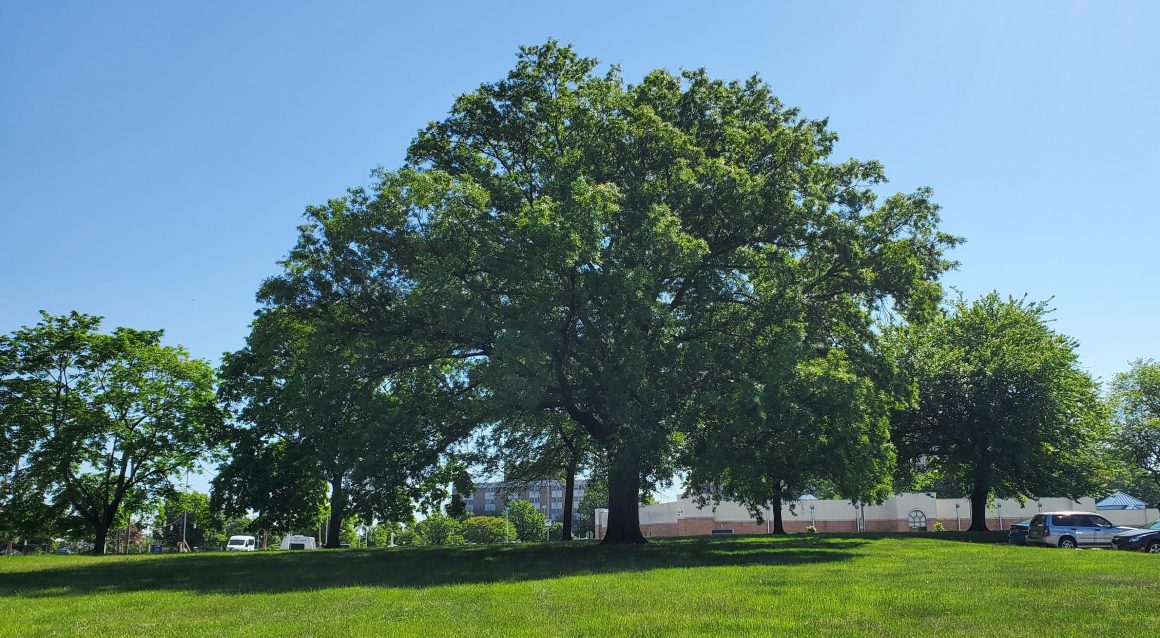Urban forests are part of the green infrastructure that communities rely on for environmental health and community well-being. Although we typically think of forests as large swaths of trees, urban forests come in all shapes and sizes including parks, street trees, landscaped trees, gardens greenways, and more. These areas provide numerous environmental and health benefits to individuals and communities within the urban areas they are located.
Adding trees and forested areas to urban environments increase the sustainability and resilience of the community.
- Forests assist in offsetting the carbon that is produced in cities, as well as in removing air pollution through gas exchange in their leaves, thus improving the overall air quality of the area.
- Trees can cool a city, improving the local climate, and help residents and businesses save energy. This is done both through shading the community, and increasing the amount of evapotranspiration, or evaporation from plant surfaces that cool the air.
- Increasing the number of trees and plants in an urban environment will help improve the soil condition of the area, which prevents effects of flooding and windstorms that create erosion.
Trees provide important health and spiritual benefit too. Physical and mental health improves with as little as 20 minutes a day in the natural world, including urban forests. Green space and urban forests provide outdoor spaces for all types of active recreation that is a powerful antidote for time connected to phones, computers, and other electronic media. Being in nature can create a multi-sensory experience that is both calming and soothing. In fact, increased time in nature has been linked to reduced stress and decreased cortisol levels, which is helpful for illness prevention and recovery.
Individual and community mental health benefit by access to urban forests. One study found that outdoor walks in urban green spaces can lead to a reduction in clinical depression by 30% compared to indoor activities. Stress reduction also improves mental health with benefits such as improved sleep, improved mood and memory, and release of tension held in our muscles. Urban Forests provide great opportunity for self-reflection and spiritual connection to the natural world. They also foster community connection. Placing nature in a city provides community members a space to learn about, bond over, and celebrate. They also create a place for events, recreation, fairs, and education.
Every plant in a city is doing an important job and creating a better environment and community. I invite you to learn more about the tree cover in your zip code using the Tree Equity Score. How can you help plant more trees and create more opportunity in your community?
Written by Catherine Slayton

